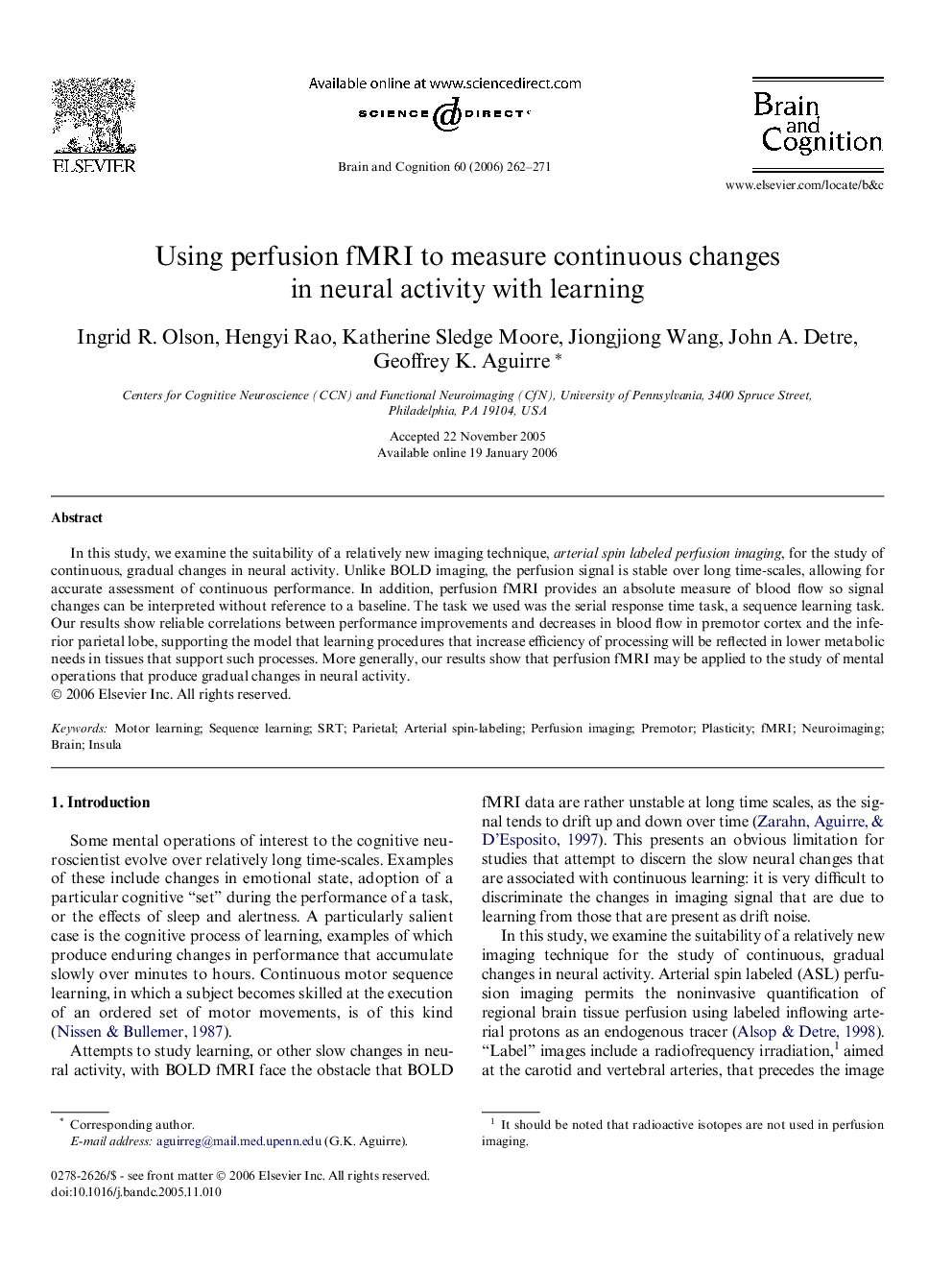| Article ID | Journal | Published Year | Pages | File Type |
|---|---|---|---|---|
| 925204 | Brain and Cognition | 2006 | 10 Pages |
In this study, we examine the suitability of a relatively new imaging technique, arterial spin labeled perfusion imaging, for the study of continuous, gradual changes in neural activity. Unlike BOLD imaging, the perfusion signal is stable over long time-scales, allowing for accurate assessment of continuous performance. In addition, perfusion fMRI provides an absolute measure of blood flow so signal changes can be interpreted without reference to a baseline. The task we used was the serial response time task, a sequence learning task. Our results show reliable correlations between performance improvements and decreases in blood flow in premotor cortex and the inferior parietal lobe, supporting the model that learning procedures that increase efficiency of processing will be reflected in lower metabolic needs in tissues that support such processes. More generally, our results show that perfusion fMRI may be applied to the study of mental operations that produce gradual changes in neural activity.
